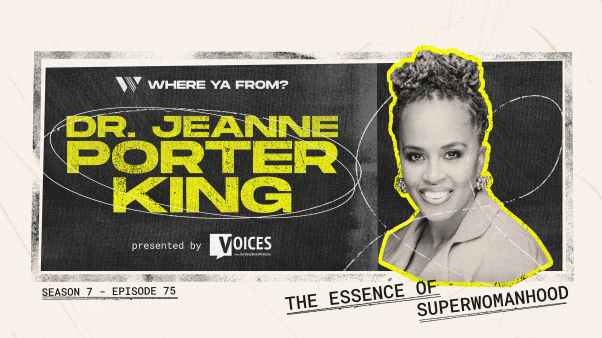After decades of resettling refugee families and placing unaccompanied refugee children in foster homes, Bethany Christian Services announced Tuesday that it is suing the state of Michigan for denying its contracts due to long-standing faith-based hiring practices.
Bethany—the country’s largest Christian adoption and foster agency and one of ten refugee resettlement agencies in the US—says Michigan’s requirement that partners must hire from across faith traditions is discriminatory and violates the free exercise clause as well as exemptions for religious nonprofits in the Civil Rights Act.
Plus, leaders say that restricting Bethany’s involvement hinders urgent efforts to care for vulnerable children and families.
This case represents the latest First Amendment legal tussle around Christian social service agencies, as more ministries eager to offer services find their basic statements of faith clashing with nondiscrimination provisions in grant programs and other government partnerships. Courts are left to weigh Christian organizations’ religious freedom protections against state regulations.
“We’re committed to serving everybody, but this is about who we hire,” said Keith Cureton, Bethany’s president and CEO since last summer. “Hiring rights is an important religious liberty that not only impacts Bethany but affects thousands of faith-based nonprofits and ministries.”
Bethany has been contracted by the state of Michigan since 1981. Last year, the organization helped over 600 refugees and immigrants and placed around 300 unaccompanied minor refugees in foster families in the state, according to its own tallies.
But in 2024, the Office of Global Michigan (OGM), the government agency that enlists local partners for immigrant outreach and services, began denying contracts to Bethany. According to Nhung Hurst, Bethany’s general counsel, the state indicated it had a new requirement that contracted organizations hire individuals of all religions.
“None of our contracts stretching back multiple decades with the state government have included such a requirement,” Hurst said. And no other organizations were affected by the new provision.
Bethany’s leaders said that before moving forward with the lawsuit they reached out to OGM 19 times and prayed fervently for resolution. Bethany is headquartered in Grand Rapids and serves more refugees in its home state than any of the other 27 states where it operates.
Christian organizations like Bethany play a huge role in refugee resettlement and foster care services, both areas that rely on contracts with the government. Even after a 2021 Supreme Court ruling sided with a Catholic foster agency that was denied a government contract in Philadelphia, the justices didn’t override a precedent involving the general applicability of state laws (Employment Division v. Smith), so cases continue to emerge around faith-based providers seeking government funding.
Bethany has been in a deadlock with the state before. When Michigan declared in 2019 that foster agencies couldn’t turn away LGBTQ families, the organization opted to change its policies in the state and then across the country. Leaders at the time argued that it was the only way for Christians to continue to care for kids in the system.
As the state of Michigan began challenging Bethany’s faith statement requirement, there were reported rumblings over the policy internally. In January 2024, a local TV news station in Grand Rapids reported on a “culture clash” at Bethany, with unnamed staff describing a stricter enforcement of the Christian hiring policy under Cureton and tensions as the refugee branch moved into the organization’s main headquarters.
When asked about the claims, Hurst said, “Like any organization, sometimes you have differences in implementation, but we are unwavering in our mission and our values and our statement of faith.”
Bethany asks its new hires to affirm the Apostles’ Creed. (Back in 2019, Bethany’s statement of faith was based on the evangelical Lausanne Covenant.) Cureton did not directly respond to questions from CT about whether it has additional faith directives for employees, such as around sexuality, but did say that no employees have been fired over the past year due to such requirements.
Among Christian nonprofits, Bethany’s requirements aren’t unusual. (World Relief, another refugee resettlement agency, asks that employees align with an evangelical faith statement. A note on its hiring page also references the “protections afforded World Relief as a faith-based employer.”)
Bethany’s lawsuit against the Michigan Department of Labor and Economic Opportunity and the OGM has been filed in the federal district court in Grand Rapids. Hurst said she is unaware of any instances where Bethany has lost contracts in other states due to its hiring practices.
The exemption for faith-based hiring has faced challenges over the years, lately over whether Christian nonprofits can require employees to live according to conduct standards and “whether the state can discriminatorily disqualify from government benefits those religious agencies that stay religious by exercising their Title VII and First Amendment rights to hire those who share their faith,” according to Steven McFarland.
McFarland is director of the Center for Law and Religious Freedom at the Christian Legal Society, co-counsel of record for Bethany’s case. Over his career specializing in religious freedom cases, he defended Seattle Pacific University in a lawsuit over its evangelical faith statement back in 1984, only to see similar legal challenges continue to arise.
Currently, the Alliance Defending Freedom is suing Oregon for rescinding a state grant from a youth ministry over its Christian hiring practices. Last month, a circuit court decided that the ministry could receive the state funding as the appeal continues.
Title VII of the Civil Rights Act has protected faith-based organizations from the government interfering with their hiring practices for six decades now, McFarland said. “For Congress in 1964, the First Amendment was clear enough, not to mention common sense, that what makes religious organizations religious is what they believe, communicate, and exercise through their staff.”















